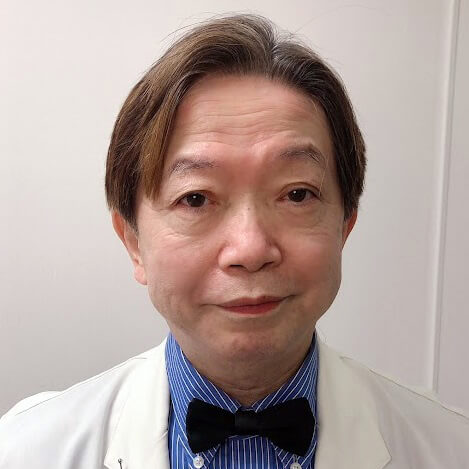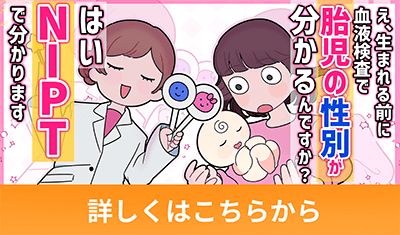Did you know that some babies are born with disabilities? The disabilities they are born with are called congenital disabilities.
In this article, we will explain in detail what birth defects are, why babies are born with defects, and what kind of disabilities they may have. We will also discuss whether NIPT (new prenatal diagnosis ) can be used to find out about birth defects, so please read on to learn more.
What is a congenital disability?
A congenital disability is a condition in which there is an abnormality somewhere in the body from birth. It can occur anywhere in the body, such as the brain, bones, or muscles, but congenital heart defects are said to be the most common.
Congenital heart defects are the leading cause of death in infancy. It has been reported that 295,000 babies die each year within the first 28 days of life worldwide due to congenital defects. However, congenital defects do not necessarily lead to life-threatening conditions.
Depending on the severity and condition of the disability, some disabilities can be managed with medication or treated with surgery. In general, the presence or absence of congenital disabilities is often evident at birth or within the first year of life through daily movements and infant health checks.
Why are we born with disabilities?
Why are some babies born with disabilities?
Currently, the causes of many congenital disabilities are unknown. However, the following factors are known to increase the risk of congenital disabilities:
- Inheritance from parents
- Infections During Pregnancy
- Nutritional deficiencies
- Substances that are harmful to the body
Let’s take a closer look at each factor.

Inheritance from parents
If both parents have genes that are at risk of causing congenital disabilities, the baby may be born with a congenital disability. Even if there are genes that are at risk of causing congenital disabilities, there are cases where the symptoms do not actually appear and the person himself/herself is not aware of it.
Therefore, just because you appear to have no abnormalities, it does not necessarily mean that your baby will not be born with a congenital disability caused by genetic factors.
Infections During Pregnancy
If the mother contracts an infection while the baby is in the womb, it can cause birth defects.
The following infections are likely to increase the risk of developing a congenital defect:
- rubella
- Chickenpox
- syphilis
- Herpes virus infections
- Toxoplasmosis, etc.
Some of the infectious diseases that are thought to cause congenital disabilities can be prevented by vaccinations, so it is a good idea to check whether you have received any.
Nutritional deficiencies
Adequate nutrition is necessary for the baby inside the womb to grow up healthy. It is said that nutritional deficiencies increase the risk of developing congenital disabilities.
Folic acid is one of the nutrients that is said to increase the risk of congenital disorders if it is insufficient. It has been reported that a deficiency of folic acid increases the risk of congenital disorders of the brain, spine, etc.
Substances that are harmful to the body
Mothers who are pregnant are at higher risk of having birth defects if they are exposed to certain substances that are harmful to the body, such as radiation, certain drugs, and toxic substances such as alcohol.
Most people exposed to these hazardous substances give birth to babies without birth defects, but exposure to long periods of time or in high concentrations increases the risk of birth defects.
Birth Disability
Here we will take a closer look at what types of disabilities can occur depending on the part of the body.
Congenital disabilities can affect a variety of parts of the body, including:
| Body parts | Disability |
|---|---|
| Head | Macrocephaly/microcephaly (abnormal head size), cleft lip/cleft palate (cleft in the lips or palate), loss or deformity of eyes, ears, etc. |
| Siblings | Loss or deformity of hands, legs, arms, fingers, etc. Congenital bow legs, twisted leg bones, etc. |
| Spine (back bones) | Scoliosis etc. |
| Brain | Brain and spinal cord abnormalities, etc. |
| Heart | Ventricular septal defect, atrial septal defect, Tetratra of Fallot, etc. |
| Digestive tube | Gastrointestinal stenosis, obstructive intestinal malrotation, etc. |
In addition to these birth defects, there are many other congenital disabilities.
Congenital disorders
There are three types of diseases that are commonly referred to as congenital diseases:
Let’s take a closer look at each disease.
Down Syndrome
Down syndrome is a disease that occurs when there is one extra chromosome, the 21st chromosome, among the genes that make up the human body.
Characteristics of the condition include weak muscle tone throughout the body, slower than normal intellectual development, and a high probability of congenital heart defects.
Down syndrome is a disease with a wide range of symptoms, with some people able to live their daily lives without any problems and others needing treatment and support.
Edwards Syndrome
Edwards syndrome is a disease caused by an extra chromosome 18. It is the second most common congenital disease caused by an abnormality in the number of chromosomes after Down syndrome .
It is characterized by a high incidence of stillbirths and newborn and infant deaths, with a 90% chance of death within one year. Immediately after birth, breathing problems and congenital heart disease may be present.
Patau Syndrome
Patau syndrome is a disease caused by an extra 13th chromosome. It is characterized by severe cardiovascular disorders in more than 80% of cases. In addition, there are many cases of brain and nervous system abnormalities.
It is estimated that less than 10% of babies with Patau syndrome are born, and more than 90% are stillborn.
Dealing with congenital disabilities
Some people may feel anxious if they find out that their baby has a congenital disability. However, even if your baby has a congenital disability, you can still raise a happy family just like most other families.
If you find out that your baby has a congenital disability, you should first visit a specialized medical institution where you can receive appropriate care and treatment. Also, depending on the type of congenital disability, there may be subsidy systems in place, so we recommend that you check.

Detecting congenital disorders with NIPT (new type prenatal testing)
NIPT (New Prenatal Testing) is a test to check for the presence or absence of chromosomal disorders in the fetus, so it can detect congenital disorders that involve chromosomal abnormalities. However, it cannot accurately detect congenital disorders that do not involve chromosomal abnormalities.
The main diseases that can be diagnosed with NIPT (new type prenatal testing) are the following three diseases introduced in the section on congenital diseases.
NIPT (new type prenatal testing) involves only a blood sample and is a highly accurate test with almost no risk.
However, NIPT (new type prenatal testing) is not a definitive diagnosis. Therefore, in order to confirm the test results, it is necessary to undergo definitive diagnosis such as amniotic fluid chromosome testing or chorionic villus sampling.
summary
This time, we introduced congenital disabilities that babies have from birth.
Congenital disabilities come in a variety of forms depending on the severity of the disability and the part of the body in which it occurs. Finding out that your baby has a congenital disability can be worrying, but by accessing the right information, you can receive appropriate support and treatment.
In addition, NIPT (new type prenatal testing) may be able to detect congenital disorders with chromosomal abnormalities from the fetus. If you are interested in NIPT (new type prenatal testing) , please consider Hiro Clinic NIPT .
【References】
- MSD Manual – Overview of Congenital Anomalies
Article Editorial Supervisor

Dr. Masahiko Ito
Former Professor, University of Health and Welfare, Former Dean, Kashiwa Rehabilitation School, University of Medical Innovation, Member, Japanese Society for Gene Therapy and Japanese Society for Gene Research, etc.
Brief History
1974 – Entered the National Defense Medical College
1979 – Externship at the Department of Pediatrics, Faculty of Medicine, University of Sydney, Australia (Royal Alexandria Children’s Hospital)
1980 – Graduated from National Defense Medical College (1st class). Joined the Department of Pediatrics, National Defense Medical College
Worked at the Department of Pediatrics, National Defense Medical College Hospital, Self Defense Forces Central Hospital, Department of Neonatology, Hokkaido General Health Center for Children, and Mishuku Hospital of the National Public Service Mutual Aid Union
1989 – Research Fellow, Harvard Medical School, USA; Clinical Fellow, Tufts University School of Medicine, USA
1993 – Lecturer of Pediatrics, Saitama Medical College Junior College of Saitama Medical School
1994 – Lecturer of Pediatrics, Saitama Medical College
1997 – Associate Professor of Pediatrics, International University of Health and Welfare, Japan, working in the Department of Pediatrics, Sanno Hospital, Japan
2006 – Special Appointment Professor of Pediatrics, International University of Health and Welfare, International University of Health and Welfare (Pediatrics)
2008 – Honorary Director of Ihatove Hospital (Iwate Rosai Hospital)
2009 – Chairman, Hasuda Yotsuba Hospital, Kokoro no Kizuna Medical Corporation
2010 – Chairman, Ginza Cosmetic Surgery Clinic, Ginbikai Medical Corporation
2011 – Director of Shinkawa Hospital, Tsuruyokai Medical Corporation
2011 – Director of Chiba-Kashiwa Rehabilitation School of Medical Sosei University Educational Corporation
2014 – Director, Niigata Chuo Dialysis Clinic, Aoi Kai Medical Corporation
2016 – Deputy Director, Niigata Seiro Hospital, Aoi Kai Medical Corporation
2017 – Director, Higashi Katsushika Hospital, Fukujukai Medical Corporation
2018 – Director of International Department, AOI International Hospital, Aoi Kai Medical Corporation
Certifications
Doctor of Medicine
Registered as a care support specialist (Care Manager)
Board Certification in Allergology, Japanese Society of Allergology
Certified Industrial Physician by the Japan Medical Association
Board Certification in Pediatrics, Japan Pediatric Society
Passed the Japanese Society of Laser Medicine Medical Specialist Examination
Councilor of the Japanese Society of Pediatric Allergy
Councilor, Japanese Society of Pediatric Psychosomatic Medicine
Councilor, Japan-U.S. Medical Exchange Foundation
Councilor, Japan Internet Medical Association
Board member of the Japan Society for Computer Science
Chairman of the Board of Directors, Nightingale Spirit League
Chairman of the Board of Directors, NPO Defense Health Career Net
Advisor to the Medical Department of Kurokane Prison, Ministry of Justice, and other positions or activities
 中文
中文






















